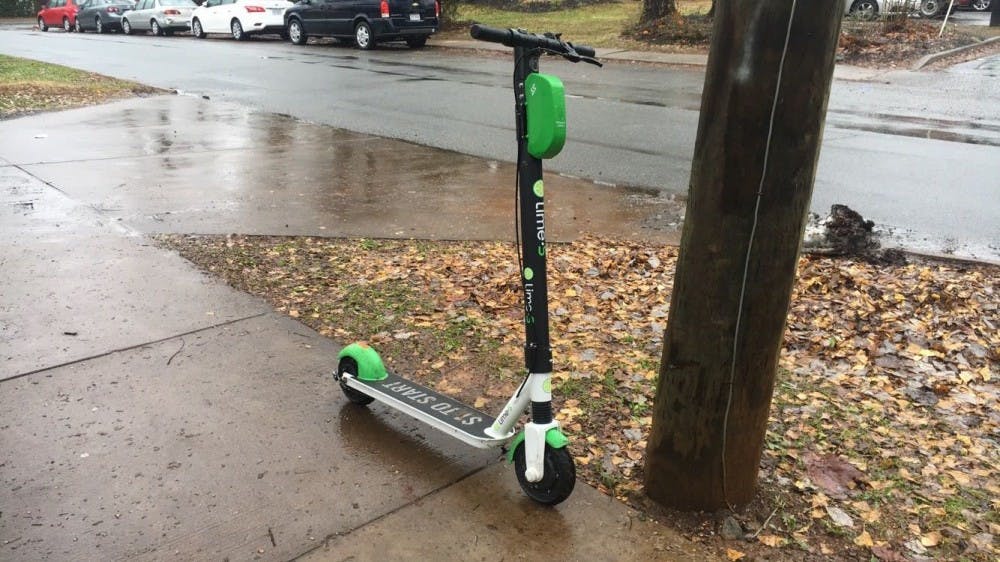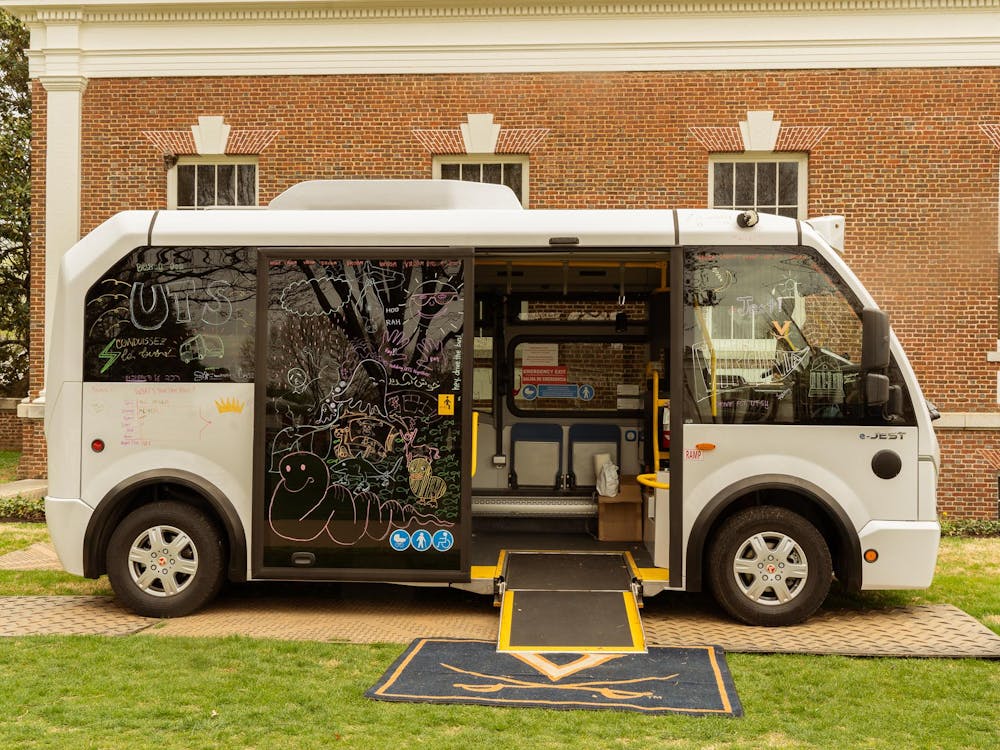Lime, the California-based electric scooter company, debuted in Charlottesville last week. Charlottesville city officials approved Lime scooters as the first dockless scooter company to operate in the city Dec. 7. Although Lime initially planned to implement 100 e-scooters and 100 electric bicycles, there are currently 200 scooters and 50 bikes placed around Charlottesville.
Sean Arroyo, General Manager for Lime, said in a press release that the company is looking forward to contributing its new and unique method of transportation to the city of Charlottesville.
“We are thrilled for the opportunity to be the first electric bike and scooter company in the city and are excited to provide Charlottesville with accessible, affordable mobility options,” Arroyo said. “Lime has helped hundreds of communities improve local transportation through sustainable bike and scooter share, and we look forward to integrating ourselves into the community and working with city, community and university leadership to best fill Charlottesville's unique transportation needs.”
Dozens of scooters have appeared around Grounds with the launch of the pilot program. Megan Talarek, a first-year Engineering student, said she was excited to experiment with a scooter that was parked outside of Observatory Hill Dining Hall on Tuesday.
Talarek enjoyed her experience and said she can see the scooters becoming a practical mode of transportation for students getting around Grounds.
“I could just have fun with them and explore town,” Talarek said. “I think it’s a great idea — I was so excited.”
The City received a business license application for dockless bikes and scooters in August and a pilot program was presented to Charlottesville City Councilors at the Nov. 5 City Council Meeting. Lime paid a pilot permit fee of $500 on Nov. 12 to begin operation.
The pilot regulation period began Nov. 13. City staff hope that the program will help the city learn whether or not these types of ride-share services will aid the city in reaching transportation goals. The pilot program is slated to end in July, however the city manager will have the opportunity to extend the program with permanent regulations or to terminate it.
Previously, there were no regulations regarding dockless scooters in Charlottesville.
Regulations have been put in place to protect the safety of pedestrians, ride-share users and other vehicles. The scooters are prohibited from riding on sidewalks and in the Downtown Mall. Scooters will automatically slow down in areas that are prohibited or pedestrian heavy via a geofencing technology.
Allen Groves, University Dean of Students, issued a University-wide email Nov. 15 regarding the scooter pilot program, which included safety recommendations from Gloria Graham, Associate Vice President for Safety and Security. In the email, Groves said the University will monitor the effects of scooter use as student transportation around Grounds and “engage with students for input.”
Graham urged students to obey traffic laws and be mindful of pedestrians; refrain from riding, parking or charging scooters on sidewalks or in buildings; keep scooters out of residence halls — per University Housing policy — and park scooters in areas designated for U-bike parking.
“In addition, you should take safety precautions to protect yourself, as well as pedestrians, cyclists, and motorists,” Graham added in the email. “Riders should always wear a helmet and never use a cell phone while operating an e-scooter.”
The vehicles do not have specific docking areas. In order to assuage fears about the scooters and bikes being parked in inappropriate places, the Lime app has set up preferred parking areas that will encourage proper parking with monetary benefits for users. Riders are asked to take a picture of the parked scooter after use.
Staff will collect the bikes and scooters by 9 p.m. for recharging and then replace them in the morning.
Unlocking the vehicles costs $1 and then an additional 15 cents per minute through Lime’s mobile app. Scooters are GPS- and 3G-enabled which allows riders to locate the scooters on their smartphone.
Talarek said that before her first ride on the scooter, the app made her aware of the precautions. However, she questioned whether students would actually adhere to the safety suggestions, particularly the helmet requirement and parking restrictions.
The mobile app features informational videos on how-to ride and scooter safety — Lime is the only company of its kind to offer these educational features. Lime requires that users be 18 years old with a valid driver’s license and wear a helmet. The helmet requirement is being reinforced by the company’s “Respect the Ride” campaign, which distributes Lime helmets to the first 25,000 users who sign a community pledge to ride responsibly.
Lime Access is another feature that allows riders without the mobile app or a credit card to pay at a nearby business hosting a PayNearMe station. For eligible users, or those who participate in state or federal assistance programs, the opportunity offers a 50 percent discount and the option to pay with cash.
Lime currently operates in Arlington and Harrisonburg in Virginia, as well as in 31 states and 13 countries.







